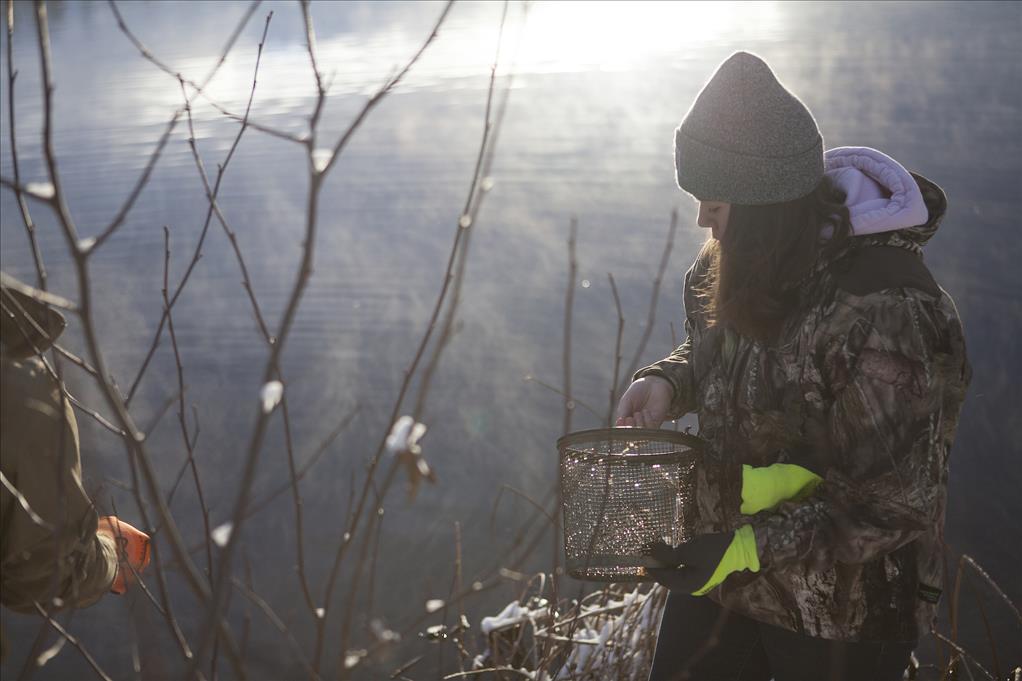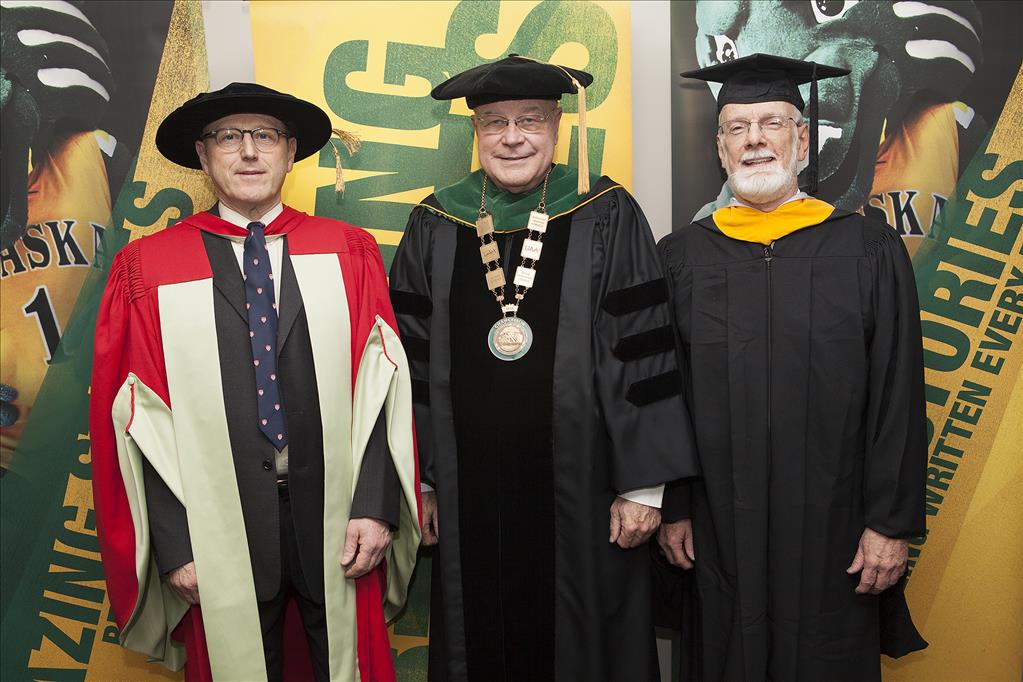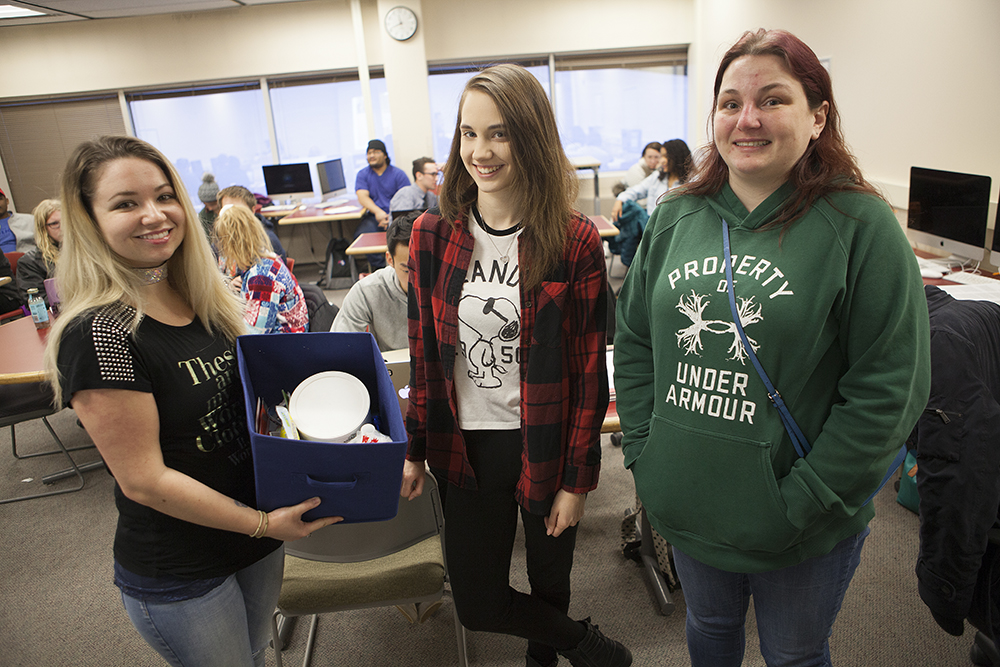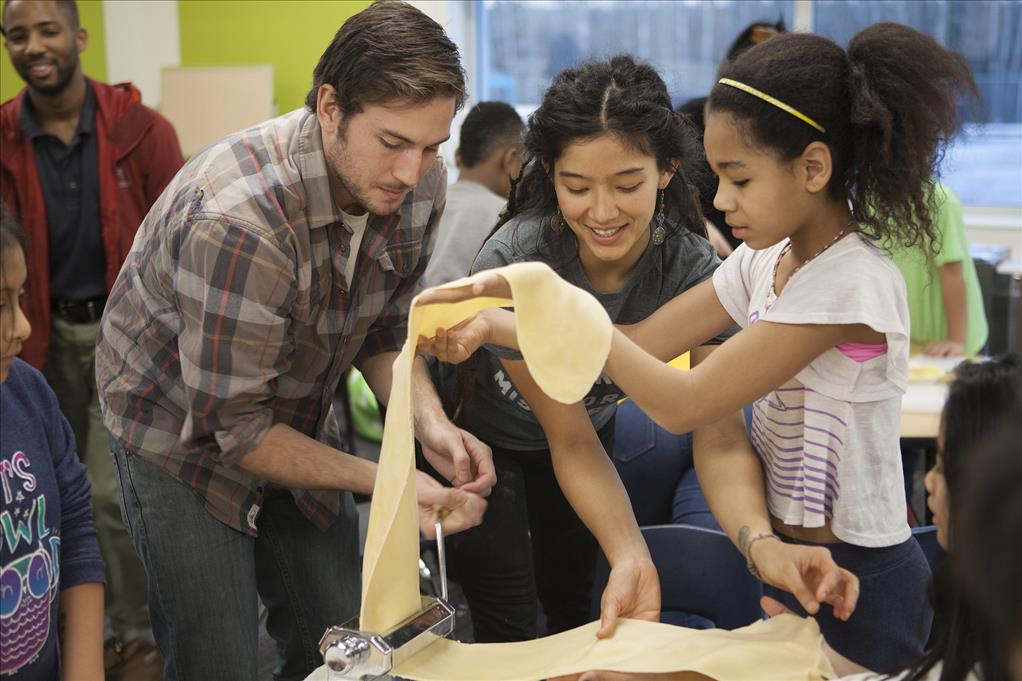Q-and-A: UAA Community & Technical College Dean Denise Runge
by Tracy Kalytiak |
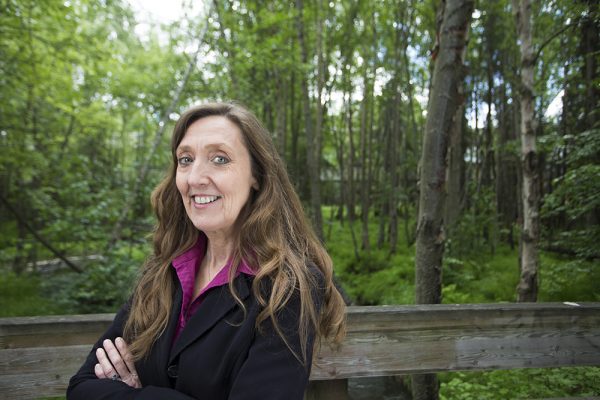
Dr. Denise Runge is the new dean of UAA's Community & Technical College. (Photo by Theodore Kincaid / University of Alaska Anchorage)
Denise Runge first visited Alaska back in 1981, when she stayed with family at Fort Richardson for five months to save money to pay for her sophomore year of college in Pennsylvania, where she majored in music before switching to political science and government. She always hoped to return to Alaska, but a scenic career path after graduation led her from journalism, public relations and a Ph.D. in public policy and administration, through teaching and research (focusing on writing and consulting about gambling-related issues and policies) and finally into administration, with stops along the way in Georgia, Alabama, Mississippi and Montana.
Now, Runge is the new dean for UAA's Community & Technical College, which offers educational choices for people wanting to grow or enhance skills in career and technical programs closely aligned with Alaska's industries-including oil and gas, occupational safety and health, information technology, construction and design, aviation, automotive, culinary, hospitality and tourism. She talked with us about what's ahead for CTC:
Where did you grow up and spend your life before moving here?
I'm from a family of six kids. We were raised pretty much in Atlanta, Georgia-that's the twang that you hear in my voice; it'll never completely go away. My folks were from Pennsylvania, originally. They had been moved to Atlanta by my father's corporation in the '50s. So I grew up in the South but I'm not of the South. I went back to Pennsylvania and went to my father's alma mater to go to school, then spent my childhood and non-college adulthood in the South until 2012-2013.
How did you initially become interested in teaching?
[As a volunteer], I was showing people how to write a résumé and cover letter and how to make a good impression. I quit my job, went to graduate school and got into higher education because I loved interacting with the adults as their teacher. I had enjoyed being a reporter, but always felt distanced or removed from actually changing anything or helping anybody-I always felt like I was on the outside watching. I thought, teaching gives me a chance to get right in the middle of things!
Why did you decide to get your Ph.D. in public policy and administration? What aspect of that course of study engaged you most?
I chose to focus on public policy because again, I wanted to be in the middle of something that made a difference. My dissertation was about the way so many states had turned to using casino and lottery revenues as a source of major state funding and I wanted to know why and was it working. I stuck with that line of research, published several books, had large grants, and did consulting work for various governments both in the U.S. and abroad around the issue of gambling.
How and why did you begin transitioning into administration of programs offering certificates and degrees in career and technical education?
My story is so typical, I think. I never wanted to be an administrator. I always wanted to be a faculty member and thought that would be my entire career. But in various committee services, curricular revisions, hiring processes, colleagues and especially my administrators above me would say, 'Oh, you're good at this.' So when an opening arose for a division director, they twisted my arm and got me to apply for it and I did and I found I enjoyed the work, that I was somewhat good at it, enjoyed it, seemed to be able to make some things more effective or efficient.
What were your initial experiences like?
I navigated through some very difficult budget-cutting years in Mississippi and some very difficult political years, where we were really struggling with the identity of the university and its place within the state system, not unlike some of what UAA is going through now. Unbeknownst to me, [UAA Provost] Sam Gingerich was in the same state at the same time. We know quite a few people in common. I think it was useful because he understood some of the fires I had come through, and appreciated some of my experiences.
Why did you decide to leave the South and move up to Alaska?
My husband spent most of his life in the Rockies but had lived in Alaska a couple of times as well. We've known each other forever but when we finally got back together and got married in 2012, we had it as a dream to retire to Alaska at least. I said, 'It's going to be very hard to find a job at a university in Alaska because I'm sure those just don't come around very often, but I'll keep looking and see if anything comes open.'
How did you get to UAA?
I applied the first time they advertised the CTC dean's position, in the fall of 2014. Bonnie Nygard was interim dean and they put [the hiring] on hold for an extra year. When I heard they put the search on hold is when I found a job opening at PWSC. After going through the interview process, I realized they were going to be closely working with the university over this last year as they came under the accreditation of the university. So I took the job thinking, 'Well, I get to be part of UAA, anyway.' I thoroughly enjoyed the year and got to know a lot of people on these campuses by working through that process of moving PWSC into the university. When they reopened the search, the search consultant called me and said, 'You still interested?' I said, 'You bet I am! Throw my hat back in the ring. I'm even more interested now because I know people there and I like them.'
What has career and technical education offered in the past?
For many years, everybody thought of college as being an appropriate track for one sort of person and technical school as an appropriate track for the other sort of person. It had nothing to do with intelligence, it had to do with an inclination: was your inclination more toward books and paper or was your inclination more toward hands-on kinds of things? For many very intelligent, motivated, bright people who like to use their hands to build and see things, technical school was the way to go. People like me were directed into the four-year degrees: liberal arts and sciences and all of that.
What happened? How did the relationship between career and technical education and academic education evolve?
Around the world, we've seen a merging of these ideas. The discussion started-for me-in the late 1990s when I was a new faculty member: Are we preparing people for the world of work? Even though they're taking a degree in political science or communications, are we giving them skills somebody actually wants? As the academic side thought more about vocation, the career and technical side thought more about the soft skills because employers are demanding it, combining the basics of the technical education with courses in writing and communications, maybe a course in philosophy or history-the things that force you to look at the world in a different way, to work in teams, to interact with ideas and really engage both your analytical and creative side. They're focusing more on teamwork, professionalism, safety. In the past, they might have spent a lot more time in automative maintenance just focusing on, say, the car. Now it's a lot more about the people and the skills and their adaptability. We're training them for a world that rapidly evolves. There's no more slow change.
What changes can prospective and current CTC students expect to encounter in the near future?
The Learning Resource Center [at Sally Monserud Hall] is now the learning commons, is the part of CTC designed to help people for whom [math and writing] skills and abilities never got fully developed or might be a little rusty. If I've been out of high school for eight years, I might not remember my algebra very well. The learning commons is there to help people get those skills for the first time or reconnect to those skills. It offers college and preparatory math, English, services and support for people whose language is something other than English, and tutoring and advisement support. We're working really hard to expand all of that and make it supportive of all the students' needs.
What goals have you have set for CTC? What groundwork must be done in order to achieve those goals?
One goal is on what is best for the student, with the other goals of efficiency and effectiveness feeding into that first one. I want to make sure we're delivering the most bang for the buck for the dollars the state entrusts to us and the tuition dollars students entrust to us. We have this professional service we have to provide and the last thing we should ever do is create a barrier for our students. With the best of intentions-never on purpose-we have erected at UAA an awful lot of barriers: physical barriers, process barriers, academic barriers. Having things split and siloed and separated in ways that don't serve the students' interests as well as they could. Part of our job as administrative members at the university is to get up to 10,000 feet and look across and make sure what we're doing for the student is the best thing overall. If I have a reason to exist, I think that's what it is. That's my number-one goal.
Written by Tracy Kalytiak, UAA Office of University Advancement
 "Q-and-A: UAA Community & Technical College Dean Denise Runge" is licensed under a Creative Commons Attribution-NonCommercial 4.0 International License.
"Q-and-A: UAA Community & Technical College Dean Denise Runge" is licensed under a Creative Commons Attribution-NonCommercial 4.0 International License.










